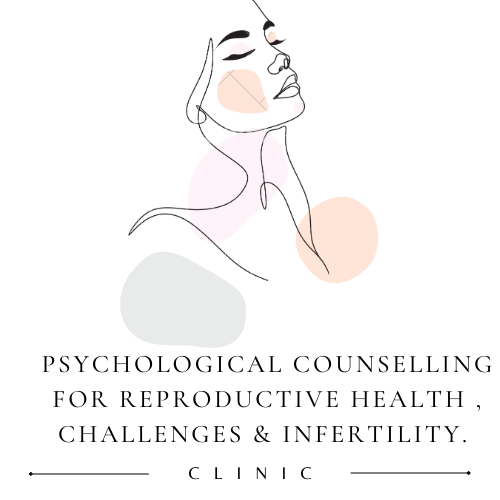
Pre-conceptional Care & Counselling
What is it?
Pre-pregnancy counselling represents a crucial health education and promotion strategy aimed at reducing poor obstetric, maternal, and fetal outcomes through risk assessment, intervention, and medical optimization before pregnancy.
It encompasses a broad spectrum of care, including health promotion, risk assessment, and education, all orchestrated to enhance an individual's health prior to and during pregnancy, laying the groundwork for a healthy pregnancy and reproductive health.
Why is it important?
Preconception health is crucial for women of childbearing age, focusing on optimizing health before and between pregnancies. This involves addressing existing health risks and avoiding harmful exposures that could affect the fetus.
Preconception counselling plays a pivotal role in this context, offering risk assessments, interventions, and referrals tailored to an individual’s medical history, lifestyle factors, and other relevant information. Educational settings such as offices, colleges, social groups and community centres are ideal for disseminating information about preconception care and counselling.
A Guide for prospective parents on pre-conceptional care & counselling
At, our Clinic for Psychological Counselling on Reproductive Health & Challenges (PCRH), we hope to have made a comprehensive guide to pre-pregnancy counselling. We hope that this guide will be a starting point for optimization of well-being among prospective parents.
1. A pre-pregnancy care checkup
Its is the first step in planning a healthy pregnancy. The goal of this checkup is to find things that could affect your pregnancy. Identifying these things is important because the first 8 weeks of pregnancy is the time when major organs develop in a fetus.
During this visit, you and your obstetrician–gynaecologist (ob-gyn) or other obstetric care provider will talk about:
- Your health status- diet, weight, fitness, habits, stress and lifestyle
- Your medical and family history
- Psychosocial history
- Medications you take
- Past pregnancies & outcomes
- Vaccinations
- Plan for any investigations, supplements and cross-referrals.


2. What is done as part of pre-conceptional counselling?
Preconception counselling also addresses broader health issues, sexual issues, nutrition and wellbeing including mental health, domestic violence, and chronic diseases, which are crucial for ensuring maternal and child health outcomes . The counselling sessions, recommended to start at least three months before conception, include comprehensive physical exams and lab tests to assess and mitigate any potential risks associated with pregnancy .
This proactive approach in healthcare aims to reduce complications and improve the overall health of the mother and baby.
3. The Link Between Mental Health and Preconception Care
In addressing the needs of women with serious mental illnesses, collaborative efforts from our experts have led to the creation of tailored preconception resources.
- For women with pre-existing psychiatric conditions, preconception care involves critical decisions regarding the management of their medication. The review of their clinical condition is essential, and decisions regarding the continuation, modification, or discontinuation of medication must be carefully considered. This approach ensures that both the mental health of the mother and the health of the future pregnancy are prioritized.
- Referrals for women experiencing new onset psychiatric conditions, ongoing mental illnesses, or psychological distress caused by psychosocial factors are also a crucial component of preconception care. These referrals during pregnancy are vital for providing timely and effective support, ensuring that all potential mental health issues are adequately addressed before conception.
4. The Importance of Mental Health Screening Before Conception
Early Mental health screening before conception is crucial as it predicts pregnancy complications and adverse birth outcomes . Universal screening ensures all women and their partners are aware of their mental health status and have opportunities to improve their well-being before conception.
Impact of Preconception Mental Health on Pregnancy Outcomes
Women with poor preconception mental health are at a higher risk of experiencing pregnancy complications, with a 40% increased likelihood compared to those with better mental health . Additionally, these women have nearly twice the odds of delivering low birth weight babies, highlighting the significant impact of mental health on neonatal outcomes . Overcoming Barriers to Effective Mental Health Screening Effective mental health screening involves overcoming several barriers such as stigma, lack of awareness, and resource limitations.
These screenings typically include questionnaires assessing a woman’s mental state, ideally starting at the initial prenatal visit.
Overall early screening for psychological/psychiatric conditions helps in:
- Addressing mental health of parents and expected child.
- Enhancing pre-conceptional and pregnancy related mental health and finally the pregnancy outcomes.
- Overcoming barriers to effective physical and mental wellbeing for parents and child.

5. When can one opt for pre-conceptional psychological consultation?
A well-trained and experienced Reproductive Psychologist like Dr Ansha Patel can conduct pre-conceptional mental health consultations. We at PCRH carry out pre-conceptional psychological consultation and counselling with utmost care and compassion. It addresses broader health issues, including chronic diseases, mental health, domestic violence, family support and occupational wellbeing, which are crucial for ensuring maternal and child health outcomes.
With our team of experts such care and consultations include initial referrals for comprehensive physical exams, mental status exams , psychological profiling and lab tests to assess and mitigate any potential risks associated with pregnancy. This proactive approach in healthcare aims to reduce complications and improve the overall health of the mother, father and baby.
Therapeutic counselling sessions, in specific cases , are recommended to start at least three months before conception and these may continue through pregnancy /in post pregnancy times as well.
Our team at PCRH is equipped at addressing common mental health disorders in Preconception

Mood and anxiety disorders, notably prevalent among individuals of reproductive age, significantly impact perinatal outcomes for both mother and the child.
- Our treatment plans are highly personalized, yet scientific considering the unique medical history of the individual and the potential effects on the fetus. This involves careful timing of medication adjustments to minimize fetal exposure and prevent withdrawal symptoms.
- In addition to medical treatments, incorporating holistic approaches like yoga, exercise, and meditation can significantly benefit mental well-being during pregnancy . These activities not only aid in stress reduction but also enhance the overall health of the expectant mother.
- It's crucial for women to engage in psychotherapy sessions, whether one-on-one or in support groups, to manage stress, family crisis, emotional turmoil and address issues like depression and anxiety effectively .
- For any changes in medication or therapy approaches during pregnancy, consulting with a healthcare provider is essential to ensure safety and efficacy.
- A comprehensive treatment plan, developed in consultation with medical professionals, will take into account all aspects of the expectant mother's health and lifestyle, aiming to foster a safe and healthy pregnancy environment.
Expert Talks
Client Feedbacks
It was really an enriching experience and very informative. Especially the diet, exercise and life style modification information are very practical ones.
It was a very insightful webinar. I learnt a lot of things and cleared a lot of my doubts and concepts.
The session was indeed a knowledgeable one. And it was worth while. I am hoping to be a part of more such sessions!
Very much relevant and enriched experience.
FAQs
Preconception care consists of several crucial components: risk assessment, health promotion advice, tailored counselling, and specific interventions. These elements are particularly effective in reducing the risk of poor pregnancy outcomes among women with heightened risk factors. We assist you with:-
- Basic health check-ups, chronic disease control (Asthma, Depression, Diabetes, Heart disease, High blood pressure, Kidney disease, Thyroid disease, genetic diseases, infections, etc) and preventive measures.
- Getting healthier as a couple, prior to pregnancy
- Planning a healthy diet routine and taking a prenatal vitamins
- Getting regular exercise /building fitness
- Reaching and maintaining a healthy weight
- Stopping unhealthy substances (tobacco, alcohol, marijuana, illegal drugs, and prescription drugs taken for a nonmedical reason)
- Keeping your environment safe and supportive
- Building effective marital relations, emotional regulation and family wellbeing.
Resources
- https://www.acog.org/womens-health/faqs/good-health-before-pregnancy-prepregnancy-care.
- https://www.asrm.org/practice-guidance/practice-committee-documents/prepregnancy-counseling-2019/
- https://bmcpregnancychildbirth.biomedcentral.com/articles/10.1186/s12884-022-05002-5
- https://www.psychiatry.org/news-room/apa-blogs/infertility-the-impact-of-stress-and-mental-
- https://my.clevelandclinic.org/health/articles/4503-preconception-counseling.
